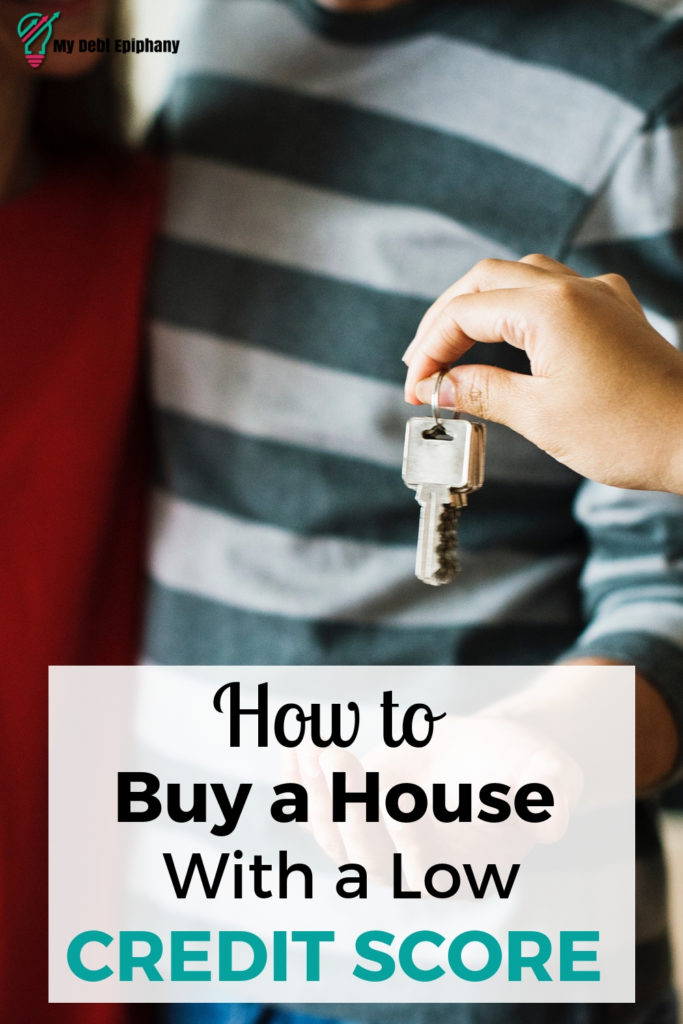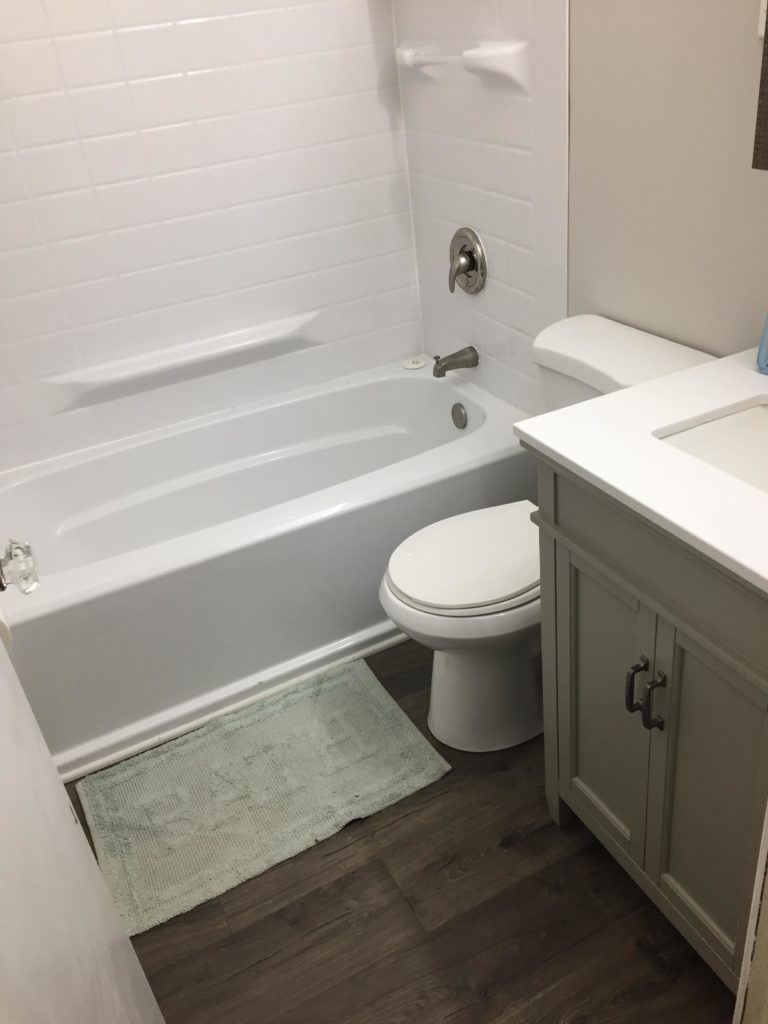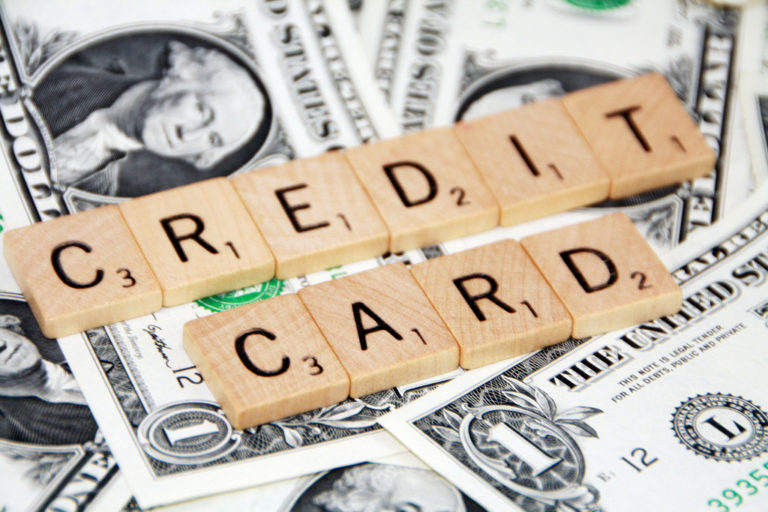Can You Buy a House With a Low Credit Score?
This post is from our regular contributor, Angelique.
With the cost of living on the rise, purchasing a house of your own can seem like a daunting goal to reach. Juggling the different responsibilities that arise in adulthood can create financial stress and for many, the casualty of such problems can result in a less than desirable credit score.
The great news is that even with a low credit score, your dream of homeownership is still possible.
Read on to learn the ins and outs of buying a home with a low credit score and tips on how to get your credit score in great shape.
Why Your Credit Score Matters
The importance of your credit score for making major purchases has always been surrounded with misleading information. However, for decades the general consensus was that a low credit score was not acceptable for the approval of loans and mortgages. Banks are quite cautious when providing loans and the qualifications can be very stringent for those who are working with lower credit score numbers.
One way banks protect their investment through a loan is by implementing a higher interest rate. The lower your credit score the higher your interest rate can be, and even one percent higher can cost you thousands of dollars more.
Also, a lower credit score can result in more restrictions, qualification requirements, and a tougher underwriting process. A few common necessities for those with lower credit scores are a higher down payment amount, lower debt-to-income ratios, and having a co-signer.
With all of these factors having a higher credit score can not only save you money but also stress and headaches.
Related: Credit Cards Are Not Evil: Don’t Make These Common Credit Card Mistakes
Lenders and The Pre-Approval Process
There are several options available to you for getting the mortgage loan you desire and these options are well worth looking into when your credit score is low.
A Federal Housing Association (FHA) loan is a government-assisted loan provided through the Department of Housing and Urban Development (HUD) and is a flexible selection for those who have low credit scores.
FHA loans offer two tiers of requirements that are dependent on your credit score. The 2018 eligible credit score is as low as 500 and those with a credit score between 500 and 579 must provide a minimum down payment of 10 percent. For those who have a credit score of 580 or higher a down payment as low as 3.5 percent is offered.
Scores that are lower than 500 are generally ineligible for an FHA loan, however, there may be exceptions to the rule based on differing circumstances. One thing to keep in mind is the mandatory mortgage insurance that is applied to an FHA loan as the down payment is less than 20 percent.
Aside from a government loan, private mortgages can be a viable option when you are unable to obtain a mortgage through traditional methods such as the bank. There are several companies that routinely work with low credit score mortgage seekers. Carrington Mortgage Services, Quicken Loans, CitiMortgage, HomeBridge Financial Services, Wells Fargo, and Rocket Mortgage by Quicken Loans are a few nationwide options.
Getting a mortgage pre-approved is a great time and stress saver and is very important when you begin your home buying process. A mortgage pre-approval shows you one of two things: that you are not quite ready for the homeownership process or that you are ready and able to buy.
Getting a mortgage pre-approved is a quick and easy process as your credit history and score are pulled from all three nationally recognized credit reporting companies: Equifax, Experian, and TransUnion. Once the data has been analyzed, you will see the loan amount that you qualify for which will help you look at houses that are in your price range more effectively.
After pre-approval, you can then move on to house shopping and selection, putting in an official mortgage loan application, waiting for the loan processing and underwriting and if your loan is approved, the closing takes place.
Some things to remember:
- A mortgage pre-qualification is not the same as a mortgage pre-approval. A mortgage pre-qualification assesses your debt-to-income ratio whereas a mortgage pre-approval requires detailed information about your income, assets, and debt that will be reviewed by the lender’s underwriters.
- It is important to be mindful of the information you receive from the pre-approval process and really process it for your unique situation. Is this really the best time for you to buy? Can you save more, build your credit score, and get a better rate down the road? How much will the loan rate cost you over the course of its term? These are all things to consider when you are on your journey.

How to Increase Your Credit Score
So, you know why your credit score is extremely important in your home buying journey, but you may be asking how you can make your credit score better than it is.
The first way is by knowing what your credit score and credit history is at each of the three credit agencies. While they each have their own scale and your credit score number may vary from one to the next, having all three numbers can be a helpful starting point on the way to the top.
Request a free credit report annually from each agency to help you strengthen your financial homeownership plan. The report won’t have your credit score but it will contain a detailed breakdown of your credit history and show you how each company rates your use of credit. This very important information can also help you see if there are any discrepancies and/or misreporting that are harmful to your score level.
Related: Credit Card Debt Consolidation: The Way to Go
How to Prepare Your Credit to Buy a House
For your credit score, there are easy and free ways to obtain that number online. Credit Sesame and Credit Karma are two sites that offer free credit score updates to help keep you on track.
To help improve your credit score before you begin applying for a home mortgage, try these methods:
Do not miss a bill payment and pay your bills on time
Lenders like to see someone who is consistent and timely with their financial responsibilities. Setting up automated payments can be helpful to make sure you don’t miss a payment.
Reduce your credit card use to less than 30% of your limit
Maxing out your credit card or using a high percentage of it consistently without paying it off in full shows that you lack control in using your credit. This is an alarm bell for lenders. Using 30% or less of your credit card limit and paying it off in full shows that you are responsible.
Pay off any outstanding debt
Your debt-to-income ratio will be reviewed during your home buying journey and the lower your debt amount the better. Budgeting and making extra money through a side hustle can help you get rid of your debt once and for all.
Remember, your credit score dictates your buying power so taking the necessary steps to increase your score will be well worth it in the grand scheme of things.
Following these tips will help put you on the right track to homeownership even with a low credit score. Remember that purchasing a house is not out of reach with the right strategy. Taking initiative and doing your research to ensure you are in the best standing possible before you apply for a mortgage loan is going to help make your journey a smoother one.
Are you looking to buy a house? Have you started working on improving your credit yet?
Stop Worrying About Money and Regain Control

Join 5,000+ others to get access to free printables to help you manage your monthly bills, reduce expenses, pay off debt, and more. Receive just two emails per month with exclusive content to help you on your journey.






